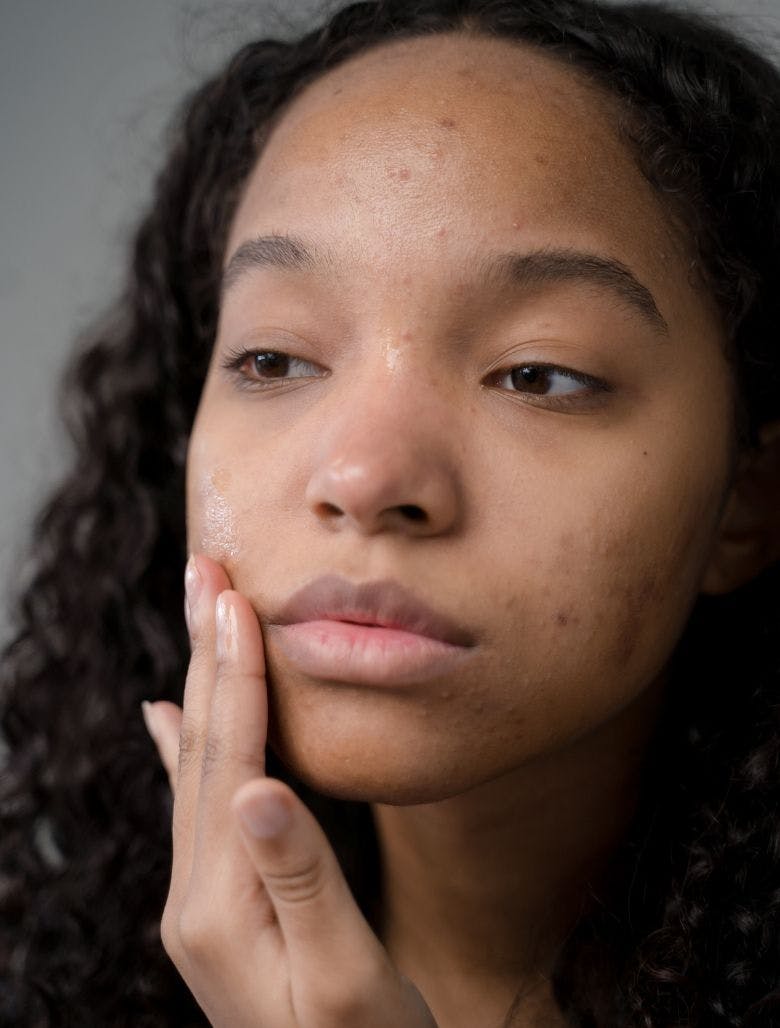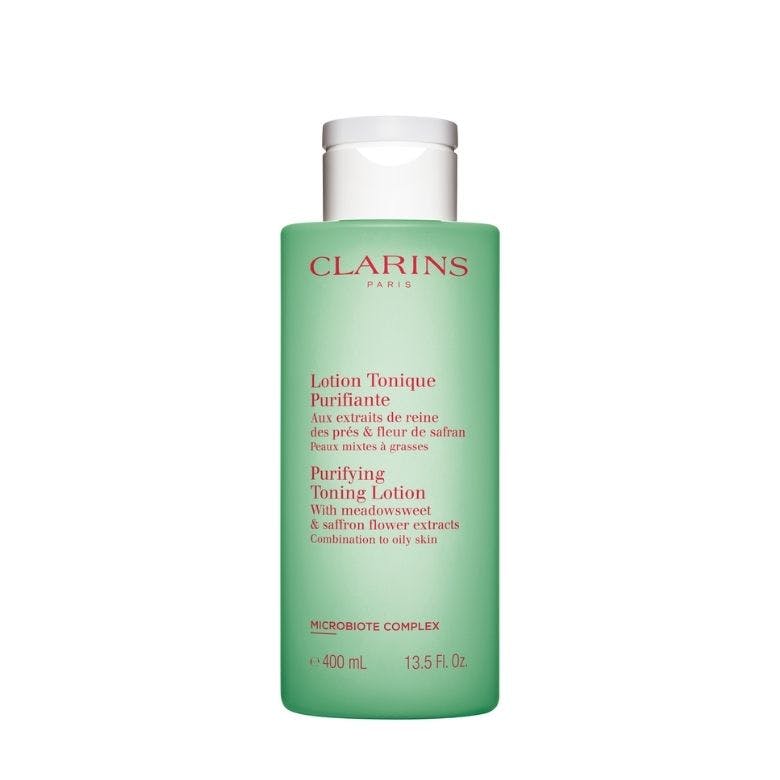How To Treat Acne Breakouts, According To The Experts
8 minutes read
95% of people aged 11 to 30 experience or suffer from acne. Although it’s not a serious skin condition, it can affect us in one way or another by making us too conscious or crushing our self-confidence.
To understand this problem, Beauty Daily reached out to a range of experts – dermatologists, nutritionists, and dieticians – to seek advice on treating acne and keeping it at bay, whether via skincare products or holistic methods involving skincare, diet and lifestyle tweaks.
Let the blemish-busting begin!
What is acne?
You may think acne and pimples are the same. No, they are not. Acne is a skin condition, while pimples are its symptom.
But first, what’s acne?
Your skin has tiny holes called pores. Pores (or medically referred to as hair follicles) can become clogged with oil, dead skin, bacteria, and dirt. When this occurs, acne is formed.

What are the different types of acne?
Acne can take several forms. Here are the most common ones as listed by the experts.
1. Blackheads and whiteheads
Whiteheads are closed pores clogged with dead skin cells, oil, and sebum, while blackheads are the same except, they are open. They are called “non-inflammatory” acne simply because they are not inflamed and don’t cause swelling. However, if these blockages get infected by bacteria, they may become irritated and turn into another type of acne.
2. Papules
Next, you have inflamed comedones, also known as acne papules. We all know these as pimples or zits. These are tiny, hard red bumps, which are all caused by excess sebum, bacteria and dead skin cells.
3. Pustules
Pimples containing pus are called pustules. These are so tempting to squeeze – but please don’t; they are the type to leave permanent acne scars. They look like whiteheads surrounded by red rings and can cause scarring if picked or scratched.
4. Cysts and nodules
These are severe acne spots that penetrate deep into the skin. They are large and swollen and can hurt just to the touch. These are unsqueezable, so again, leave well alone. Unlike regular pimples, these acne types tend not to form a head. Attempting to squeeze them will not release pus and may lead to further inflammation. They reside deep underneath the skin’s surface and usually require a visit to a dermatologist.
What causes acne?
Just as not all spots are the same, so are the reasons that cause them. To pinpoint the cause can be tricky but understanding, observing, and listening to your skin and body are key.
1. Hormones
Studies show that acne is more prevalent in adult women. The NHS said that many cases of adult acne are caused by a hormonal imbalance among women at certain times, such as menstrual cycle, pregnancy or, in other cases, when one has polycystic ovary syndrome (PCOS). According to the NHS, certain medications exacerbate or trigger acne.
2. Genetics
You may wonder why some people have spotless skin regardless of what they do and eat. On the other hand, here you are: despite following a strict skincare regimen or nutrient-dense diet, a spot or two keep popping. Here’s a tip, check if one or two members of the family are acne-prone, then genetics may be your answer.
Dr Anastasia Therianou MD, PhD, London-based NHS consultant dermatologist, says: “Some people get acne while others don’t because of genetic predisposition. Therefore, some people are more susceptible to acne due to genes.”
A study found that if both your parents have acne, you’re more likely to get more severe acne early. If one or both of your parents have adult acne, you have a higher risk of getting it too.
3. Gut
Experts say skin inflammation is common if you have bad gut health. The gut and skin communicate via the ‘gut-skin axis’. When the gut microbiome is altered due to poor lifestyle, nutrition, or environmental stressors, it negatively affects our skin microbiome which therefore manifests to the skin via acne.
4. Stress
Skin problems caused by stress are a real thing. Experts say overproduction of cortisol (stress hormones) increases the activity of the oil glands leading to clogged pores and acne breakouts. Chronic stress leads to constant increased levels of these hormones and can have harmful long-term manifestations on the skin.
Read next: The Signs Your Skin Is Stressed and How To Solve It
5. Improper skincare routine
Are you faithfully treating your acne but still seeing new breakouts? Your skincare routine could be to blame. Be warned that the incorrect use of skincare products, overuse of active ingredients and over-exfoliation can all aggravate acne and breakouts. Also, make-up can clog the pores while you sleep, resulting in the development of acne. Even non-comedogenic make-up can cause acne if you sleep in it.
6. Trapped moisture
Bacteria like to grow in moist environments; this is why some suffer from maskne when wearing masks for a prolonged time. The humidity in the mask creates a breeding ground for bacteria, meaning acne can occur. In addition to wearing items that place pressure on an affected area of skin, such as a headband or gym bra, wearing tight clothing or heavy makeup for long periods of time can exacerbate acne by trapping moisture, sweat, and oil.
7. Alcohol
Many alcoholic drinks, cocktails and wine are incredibly high in sugar. Research suggests that sugar in alcoholic beverages increases hormone levels, leading to overproduction of sebum and a higher likelihood of breakouts or acne.
Read next: Does Alcohol Age Your Skin? The Experts Weigh In
8. Smoking
The British Association of Dermatologists published research that links smoking to acne. They suggested that adult female smokers seemed to be affected by a particular type of acne: NIA, or non-inflammatory acne.
“Smokers sometimes manifest large white and blackheads around their eyes,” Dr Gabriela Petrof, MBBS, PhD, NHS Consultant Dermatologist says.
9. Poor sleep
According to a study, lack of sleep may cause acne. This is due to the increase in cortisol levels and oil production in the skin, which clogs the pores and leaves room for spots to grow.
10. Pollution
The air we breathe is far from pristine. It is a cocktail of microscopic specks of dirt, debris, dust, soot and smoke that land on your face, penetrate deep into the skin and clog pores. If pores are not properly cleansed, they can turn into acne. Pollution is a recipe for disaster for people with already oil-prone skin
How to Treat Acne?
1. Skincare
Treating acne through skincare can be tricky as there is no one size fits all solution. Assess what triggers your acne. This will all depend on the type of acne, your environment, skin type, and lifestyle. These all play a role in the development of your acne.
If you know your acne is triggered by pollution:
Use an anti-pollution cleanser like the Velvet Cleansing Milk. The moringa extract in this cleanser effectively removes accumulated dirt, bacteria, and debris from your pollution exposed skin.
If you have acne due to oily skin type:
Add salicylic acid products into your skincare regimen. Salicylic acid is a great active ingredient and is best known for its exfoliating and blemish-fighting powers and it is recommended for acne-prone and oily skin people. Beauty Daily recommends Purifying Gentle Foaming Cleanser.
This bacteria and blemishing fighting foaming cleanser is perfect for people with combination or oily skin types. Thanks to the pore-cleansing blue granules made with salicylic acid, it gently cleanses, purifies, and mattifies, leaving skin spotless and squeaky clean.
If your skin microbiome is imbalanced

Incorporate skin microbiome-friendly products that work for your skin type. Clarins toning lotions are powered by Microbiota Complex, which rebalances the skin microbiome keeping them healthy and harmonious. It is available for normal, dry, oily, and sensitive skin.
Regular exfoliation is recommended once or twice a week to remove accumulated dead skin cells. Followed by your normal skincare routine.
Keep these two handy products on your skincare shelf:
Spot treatment: For those inevitable days of acne breakouts and blemishes, CLEAR-OUT Targets Imperfections is our go-to arsenal to quickly zap spots.
Blackheads eraser: CLEAR OUT Blackhead Expert [stick + mask]. This 2-in-1 [stick + mask] product banishes pesky blackheads and leaves the skin soft, smooth and clear, even close up.
2. Diet
According to the British Association of Dermatologists, diet can influence acne. High glycaemic index (GI) diets (e.g. sugar and sugary foods, white bread, potatoes, white rice etc) cause or aggravate acne. Switching to a low GI diet may lead to fewer spots. Food high in fat, sugar and dairy may increase sebum production in people with oily skin. Limit alcohol consumption.
Dr Sammie Gill, PhD, RD, specialist gastroenterology dietitian, and scientific research and development manager at Symprove, also advises keeping the gut in tip-top condition.
“Due to the gut-skin connection, we know that what we eat influences how our gut microbiome functions, indirectly impacting other organs, including the skin. Therefore, focusing on gut health is key to maintaining skin health. Think of variety, diversity, and colour when it comes to food.”
To keep the gut healthy, eat plenty of fermented foods, such as kimchi, kefir, miso, tempeh, kombucha or even natural live yoghurt and consider a probiotic supplement.
“There is some emerging research investigating the potential of probiotics in other areas of skin health too, including acne,” Dr Gill, member of the British Dietetic Association.

Acne and Holistic Nutritionist Maria Marlowe shares her Blemish Blast Blueberry Smoothie: “This smoothie is packed with antioxidants- and nutrient-rich ingredients that provide anti-inflammatory benefits to help reduce blemishes – it only takes 10 minutes to make ad tastes delicious too.”
Its main ingredient is blueberries, rich in antioxidants that protect your body from free radicals, unstable molecules that can damage your cells and contribute to acne, and other skin inflammation.
Read next: Adopt A Holistic Approach If You Want Healthier Skin In 2022
3. De-stress
“Prioritise quality and quantity of sleep – aim for 7-9 hours per night and try to minimise stress- go for a walk, do some diaphragmatic breathing exercises, practice mindfulness. Avoid smoking,” Dr Gill advises.
Read next: The Best Relaxing Essential Oil Blends For De-Stressing Your Day
Sign up for our newsletter
We will keep you in the loop for special offers, exclusive gifts and product news.

